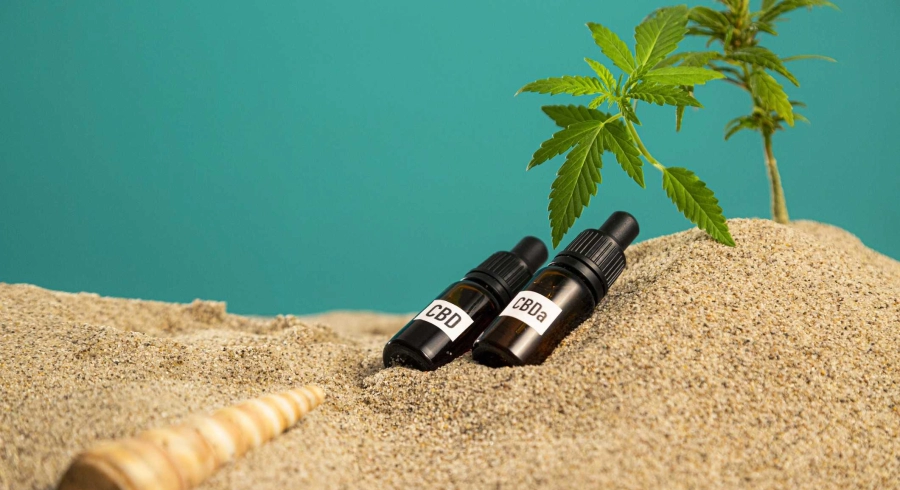Have you heard of CBDA?

CBD, the most well-known cannabinoid, is used for its therapeutic potential as well as for recreational purposes due to the relaxing sensation it provides. But did you know that the precursor of CBD, CBDA, is just as beneficial?
Find out more about CBDA and some of its many potential applications.
What is the difference between CBD and CBDA?
A fresh hemp plant contains very little CBD. But rest assured, this does not affect the quality of the CBD products you consume from cannabis!
The cannabidiol that you find in our CBD oils, waxes, e-liquids, flowers and resins is in fact derived from the natural transformation of CBDA into CBD achieved by heating and drying the plant. The raw cannabis plant contains cannabinogenic acid, or CGBA, which is converted into cannabidiolic acid, CBDA, through enzymatic action. This CBD acid is concentrated in the glands of the fresh plant. When cannabis is heated or dried, CBDA undergoes a decarboxylation process which results in the formation of CBD. As traditional uses of cannabis usually involve dried and heated plants, research has naturally focused on the cannabinoids present in hemp products, such as CBD. For a long time, CBDA was even believed to be just an inactive form of CBD. But this is not the case. Even though there is still little research on CBDA, it seems that this molecule is highly beneficial and has different mechanisms of action than CBD.
CBDA, a powerful anti-inflammatory
CBD and CBDA help to fight inflammation but do not act through the same mechanisms. A study conducted in 2008 shows that CBDA inhibits the COX-2 enzyme. This enzyme is involved in inflammation following injury or infection. Although this result needs to be corroborated, CBDA appears to be a very powerful anti-inflammatory. It would also help to combat any pain that comes with inflammation.
CBDA to combat vomiting
Another promising application for CBDA is in anti-nausea treatments. A laboratory study on animals in 2013 showed that administering CBDA to shrews and rats reduced their nausea and vomiting. The researchers even showed that CBDA affects the activation of 5-HT1A receptors more effectively than CBD.
Is CBDA a cancer treatment?
There is little research into the use of CBDA to combat certain forms of cancer and it remains controversial. The few studies available seem to show that cannabidiol is more promising, but there is still a lot to discover. However, there is a study on CBDA that has been in the news. The University of Hokuriku showed in 2012 that CBDA prevents breast cancer cells migrating to other aggressive forms of cancer. However, there is still a long way to go before CBD or CBDA can be incorporated into cancer treatments.
CBDA research is still in its infancy. However, this compound certainly has a lot of properties, sometimes superior to those in CBD! CBDA is still making news!

Leave a comment